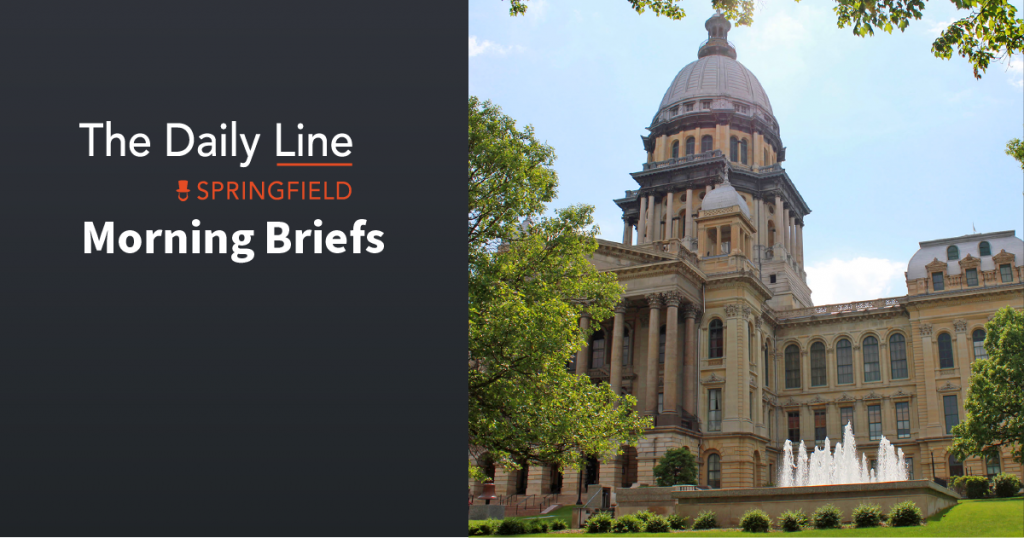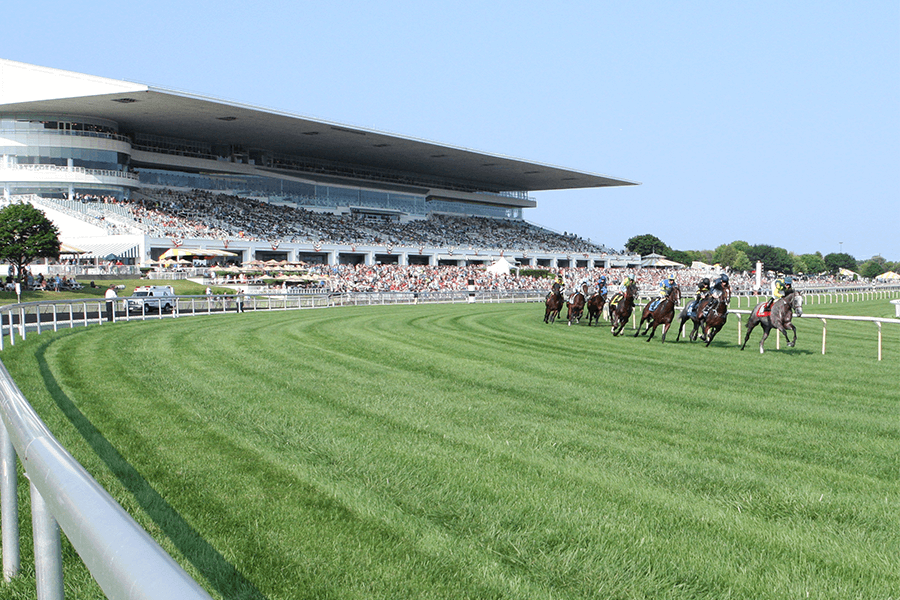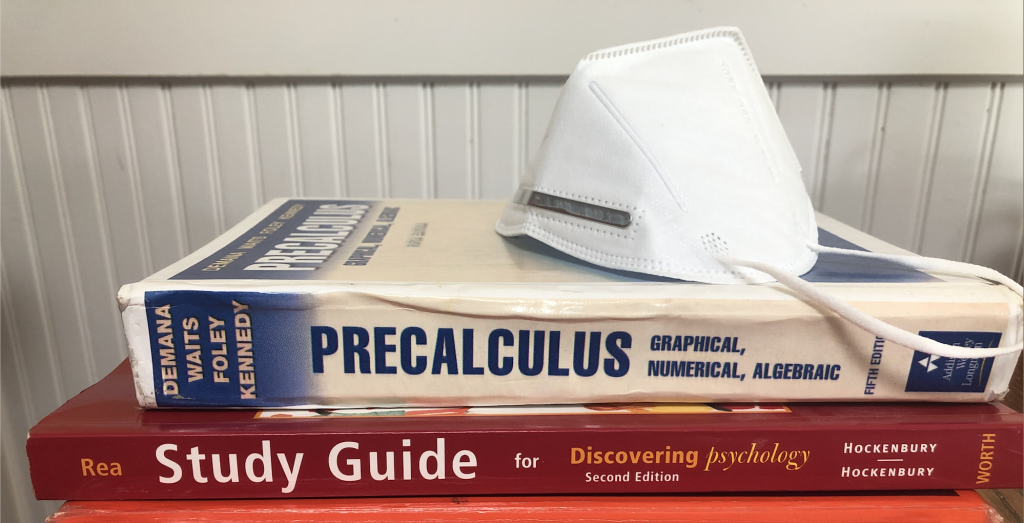Springfield News
-

-
Despite emergency rules put in place by Gov. JB Pritzker’s administration nearly four weeks ago mandating that long-term care facilities put coronavirus testing plans in place, the head of the Illinois Department of Public Health (IDPH) on Tuesday acknowledged the state does not know whether those plans were actually made.
-
AMAZON TO OPEN TWO FULFILLMENT CENTERS IN SOUTH SUBURBS — Tech giant Amazon will open two fulfillment centers in south suburban Markham and Matteson, Gov. JB Pritzker announced along with local officials on Monday. The pair of centers — set to be fully open by the 2021 holiday season — will be the 12th and 13th Amazon fulfillment centers in Illinois and leaders claimed they would provide 2,000 permanent jobs for south suburban residents, in addition to short-term construction jobs to build the massive warehouses, which Amazon officials said would house state-of-the-art robotics technology to work alongside human employees. Cook County President Toni Preckwinkle said she was “hopeful” that the company’s investment “will provide a much-needed boost to the local economy.” But local leaders from U.S. Rep. Robin Kelly (D-Ill.) to State Sens. Mike Hastings (D-Tinley Park) and Napoleon Harris (D-Harvey) used Monday’s announcement to put pressure on leaders to push forward with an airport in Peotone — a project first proposed decades ago. “Gov. Pritzker, I’m calling on you to come and help support us in our efforts in securing the third airport here in the great state of Illinois,” Harris said. Pritzker noted the state’s $45 billion infrastructure plan passed last year allocated millions to surrounding infrastructure that would be needed to run a third major airport in the region, but said the state would need input from industry leaders like Amazon on whether the airport is actually needed. “There are people at Amazon that certainly will be an important part of the decision-making about whether companies like Amazon will want to move their cargo operations to an airport like Peotone,” Pritzker said. (Hannah Meisel)
ARLINGTON RACE DATES FINALLY SET — Thoroughbred horse racing will finally begin at Arlington International Racecourse next month after weeks of tense negotiations ended over the weekend, resulting in a truncated horse racing schedule at Arlington weeks behind Illinois’ two other racetracks. The Illinois Racing Board approved Arlington’s shortened schedule on Monday morning after negotiations broke down late last week as representatives from Arlington and the Illinois Thoroughbred Horsemen’s Association shot accusations back and forth in front of the board at its regularly scheduled Thursday meeting, which was then stretched into Friday and finally Monday as board officials attempted to help shepherd negotiations to a close. Illinois’ thoroughbred horse racing season typically begins on May 1 but was delayed due to the coronavirus pandemic. However, long-simmering tensions between Arlington and Illinois’ thoroughbred horse racing industry further delayed a contract deal, even as spectator-free racing began at Hawthorne Racecourse in Cicero and Fairmount Park in Collinsville in early June. Arlington’s race season will begin on July 23 and end Sept. 26. (Meisel)
Related:
Racing board extends approval deadline for Arlington Racecourse deal — again
Racing board to broker deal between Arlington Racecourse and horsemen group
Horse racing associations worry truncated seasons may “decimate” fragile industry -
Third party candidates in Illinois will still have until July 20 to collect just 2,500 petition signatures to get on the ballot for the November election, the Seventh Circuit Court of Appeals ruled Sunday, defying the wishes of the Illinois State Board of Elections..
In denying the elections board’s request to halt a lower court’s ruling, candidates running for statewide offices on the Green, Libertarian or other third party ticket need only collect 10 percent of the usual 25,000 signatures required of non-established party candidates. Their deadline for file the petition signatures was also extended due to the coronavirus pandemic.
The Board of Elections said it believed the initial Aug. 7 petition filing deadline the court had ordered “would impact its ability to conduct an accurate and orderly election,” according to the Seventh Circuit’s interpretation of the request.
In response, a federal judge moved the filing deadline up to July 20 — the middle ground between the initial Aug. 7 deadline and the board’s request of July 6. The judge declined to increase the number of signatures the third-party candidates needed to get on the ballot, and the board appealed the decision earlier this month.
The Seventh Circuit’s Sunday ruling noted the board “waited until June 6, a Saturday” to file its notice of appeal, and lightly chastised the board for not first filing its motion in the lower court.
That was after the Board of Elections had initially agreed to the terms in the federal judge’s April ruling, including an Aug. 7 deadline and lowering the number of petition signatures to 2,500.
The appellate panel said the board’s contention that it “would suffer irreparable injury” if the court did not intervene “gave us pause,” the unsigned order said.
However, the panel ultimately found the board’s argument unconvincing, and ruled that it would be unlikely to succeed on an appeal, especially given the evidence submitted to the appellate court — including the fact that other petition signature disputes have taken time to clear up — was weak and lacked support, according to the panel.
“In contrast, the appellees have provided evidence showing that they would be significantly injured if we stayed the preliminary injunction,” the panel wrote.
However, the Seventh Circuit did not slam the door on the appeals process, ordering both the board and the Green and Libertarian parties to submit paperwork by July 6, asking for either briefings or an oral argument.
Board of Elections spokesman Matt Dietrich acknowledged Monday that most of the board’s original wishes are now moot, as the seven-day window for third party petition filing is still set to begin on July 13.
“It would appear unlikely that any filing dates will be changed,” Dietrich said. -
The Illinois Department of Employment Security (IDES) earlier this year suspended failed Chicago aldermanic candidate Dwayne Truss for seven days after the state’s inspector general found he had made dozens of social media posts related to his 2019 run for City Council while on the clock for IDES, according to a report published Monday.
Truss, a longtime auditor with IDES, unsuccessfully ran against Ald. Chris Taliaferro (29) last winter, garnering 27.5 percent of the vote. But months after Chicago Mayor Lori Lightfoot won her election, she appointed Truss to the Chicago Board of Education. Truss earns more than $87,000 per year at IDES, according to state records. He served the suspension in February.
Illinois Executive Inspector General Susan Haling’s office received a complaint about Truss’ social media use during work hours last February — five days before the aldermanic election. Haling opened a case into Truss, which ended in the longtime IDES employee admitting to making some of his campaign social media posts on state time but denying that he’d violated the State Employee Ethics Act or IDES policy.
State employee ethics law prohibits state employees from performing political activity during work hours, including “preparing for, organizing or participating in any political meeting or event…planning the solicitation of contributions including…tickets for any political event.” Haling’s office found that the Facebook and Twitter posts from Truss’ campaign accounts during work hours should be categorized as organizing events and planning to solicit campaign contributions.
Truss denied violating state law, saying his understanding of the State Employee Ethics Act was that in order to have engaged in prohibited political activity, he would either have had to solicit or distribute campaign materials to his co-workers, or be at his desk working on his campaign. Truss said he posted on social media on behalf of his campaign using his personal cell phone, and not his IDES-issued mobile phone or computer.
However, Truss admitted that he’d made photocopies of at least two pieces of campaign materials while at work.
According to the report, Haling’s office zeroed in on nine social media posts made by Truss’ campaign that “clearly involv[ed] prohibited political activity,” beginning in July 2018. The posts announced canvassing events, a birthday fundraiser and three posts “concerning political rivals.” Truss denied his posts concerning Taliaferro and then-Mayor Rahm Emanuel were campaign-related, and contended he’d made them while on breaks at work and from his personal cell phone.
Truss was also defiant in whether his other posts made during work hours violated state law, arguing the posts about canvassing events and his birthday fundraiser were not directly organizing or soliciting campaign donations, though he did admit to making the fundraiser post during state time.
“According to Mr. Truss, fundraising would occur at the event itself, rather than through the posting of social media on September 7,” according to the report.
Haling’s office disagreed.
“The post not only advertised a political event meant to fund Mr. Truss’s aldermanic campaign, but also informed the reader of how to make payment to his campaign, including to whom checks should be made out,” according to the report. “Because this post: helped to prepare for or organize a political event, solicited — or at the very least planned the solicitation of—contributions in the form of tickets purchased for a political event…this post also constituted prohibited political activity.”
The investigation found that Truss did not use his desk phone to make calls to his campaign manager, but Truss’ subpoenaed personal cell phone records showed he’d made at least seven phone calls to his campaign manager during work hours, two of which were longer than the 15-minute paid breaks IDES employees are allowed to claim.
Truss’ seven-day suspension is much shorter than a 30-day suspension served by an Illinois Department of Transportation employee last year, who was found to have made four Facebook posts on state time in favor of the campaign of former State Rep. Jeanne Ives (R-Wheaton), who was challenging then-Gov. Bruce Rauner in a bitter Republican primary battle in 2018.
Related: IDOT employee fined, suspended for pro-Ives Facebook posts on state time -

There’s still no deal to reopen Arlington International Racecourse for thoroughbred horse racing this summer after weeks of negotiations — including two days of contentious debate in front of the Illinois Racing Board last week. -
A signature tax credit program run by the state has been improperly administered for years and in some cases has been two decades late in delivering reports, according to an audit released this month.
-
ICC APPROVES UTILITIES DELAYED PAYMENT PLAN — The Illinois Commerce Commission on Thursday approved a plan to extend shutoff protections for utilities customers unable to pay the full amount due to financial hardship during the Covid-19 pandemic. The statewide moratorium on utility shutoffs will be extended until 30 days after Illinois enters Phase 4 of Gov. JB Pritzker’s reopening plan — currently slated for June 26 — and will also allow customers to enter into deferred payment agreements or even have their utility debts forgiven. The plan was negotiated between Attorney General Kwame Raoul, Chicago Mayor Lori Lightfoot, the Citizens Utility Board, other consumer advocates and the utilities themselves and covers customers of Ameren Illinois, Aqua Illinois, Commonwealth Edison, Illinois American Water, Nicor Gas, North Shore Gas, Peoples Gas, and Utilities Inc. A separate agreement was entered into for smaller investor-owned utilities in the state. In a statement Thursday, ComEd CEO Joe Dominguez said the company is “committed to doing everything we can to help ease our customers’ financial burden.” [Hannah Meisel]
Related: Illinois Commerce Commission set to approve payment agreements for utility customers facing potential shutoffs
ILLINOIS SUPREME COURT — In a 4-3 decision Thursday, the Illinois Supreme Court ruled that a private ambulance company and ambulance driver were not immune from liability for a 2016 traffic accident, as the ambulance was not transporting a patient at the time of the accident. Lifeline Ambulance LLC driver Joshua Nicholas allegedly ran a red light at the intersection of Chicago’s Grand Avenue and Lake Shore Drive in March 2016, colliding with the vehicle of Roberto Hernandez, who allegedly sustained a fractured vertebrae and other injuries in the crash. While longstanding caselaw upholds immunity for ambulance drivers under Illinois’ Emergency Medical Services Systems Act, the four Supreme Court justices ruled Thursday that the immunity is only extended when an ambulance is currently transporting a patient in a non-emergency situation. Nicholas’ ambulance collided with Hernandez’s vehicle while Nicholas was on his way to pick up a patient at a dialysis center in suburban Villa Park. Justice P. Scott Neville, Chief Justice Anne Burke and Justice Rita Garman dissented, finding that Nicholas’ driving an empty ambulance was done in the course of performing his job duties, and he should be found immune from liability. [Meisel] -
Despite a long-standing clause in Chicago’s Fraternal Order of Police contract, disciplinary records for police should not be destroyed after five years, the Illinois Supreme Court ruled Thursday. The ruling effectively overturns an arbitrator’s award to enforce that part of the contract and sides with the city of Chicago.
-
Illinois students and teachers are required to wear masks or face shields when they return to the classroom this fall, according to guidelines set by the Illinois State Board of Education (ISBE) Wednesday, although it is unclear how schools can enforce the mandate.
 Students and teachers will be required to wear masks when they return to school in the fall, according to guidelines from the Illinois State Board of Education. [Hannah Meisel/The Daily Line]
Students and teachers will be required to wear masks when they return to school in the fall, according to guidelines from the Illinois State Board of Education. [Hannah Meisel/The Daily Line]











